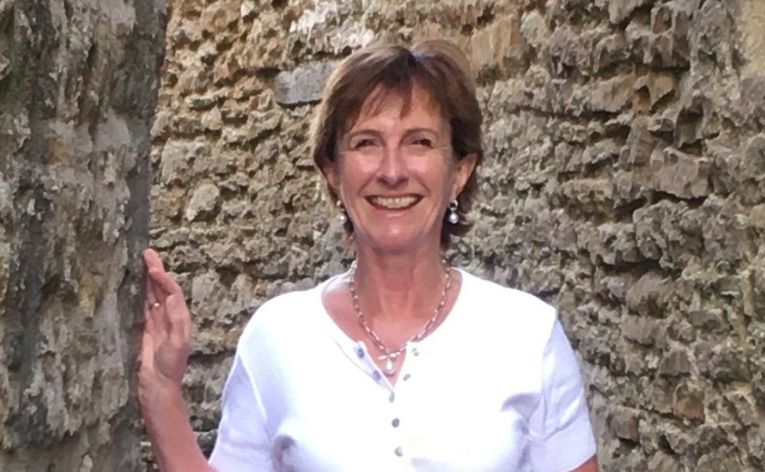News

Meet an alumna - Henri Cruddas
Meet Henri Cruddas, Director of Regulatory Compliance EMEA at Airbnb and a 2018 graduate with a Master’s in European Banking and Finance Law. Henri’s career journey has been filled with diverse experiences in the legal field across various countries, leading her to her current role, where she navigates the complex landscape of regulatory compliance in the European market at one of the biggest tech companies.
During her career, Henri transitioned from being a successful banking lawyer in the UK to a financial services lawyer and then a regulatory compliance consultant in Australia, before finally becoming a fintech compliance expert in Luxembourg. After graduation from Uni.lu, Henri took roles at tech giants like Amazon and Airbnb, where she has worked for the past six years. We had the chance to sit down with Henri to discuss her journey from graduation to landing a top position at Airbnb.
Thank you for joining us, Henri. That’s quite a diverse career path. How did you transition from working in Australia to studying in Luxembourg?
After several years of working for a number of banks in Australia and providing legal and compliance services to some of the major and minor financial institutions, I felt it was time for a change. And so I decided to take a year out as I wanted to pursue a master’s degree. I looked globally and found that the University of Luxembourg offered a programme that matched my interests in European banking and finance law which is the area I wanted to develop.
So what drew you specifically to the University of Luxembourg’s programme?
The programme had a good mix of retail banking and fund management areas I wanted to explore further. The specifics also fitted my experience. But particularly, I wanted to learn more about European banking and finance law because my background was in Australian and English law. Luxembourg provided that European flavour I was looking for. The course fees were also a factor; I had offers from several other top universities, but they were way more expensive. So Luxembourg was the practical choice. And I packed my bags and moved to Luxembourg. I thought I’d just come here for a year.
So how did you find the course, and what happened next?
In the first semester, when we did the basic fund management, I realised that fund management was not for me, and so I didn’t want to specialise in that. But then, in the second semester, I did the banking stream and learnt a lot about European and Luxembourg laws. So I decided I liked Luxembourg and thought I’d see if I could get a job.
And so I joined Amazon and became the Chief Compliance Officer for the payment service provider to the platform business and the marketplace. This was new for me, being on the payment side where you’re supporting the main business but payments is not the main business itself as it is in a bank. Then Airbnb came along, and they were setting up their payments entity in Luxembourg because of Brexit, so I joined Airbnb Payments Luxembourg as the Chief Compliance Officer. I did that role for 4-5 years, and I’m now in a role as Director of Compliance for EMEA for the Airbnb platform in Ireland. So, there is no doubt that the knowledge I gained at the faculty was absolutely invaluable in setting up all the compliance systems, knowing the law for the payment services provider and how the legal system works in the EU. Without it, I also would not have secured the amazing roles I have had since graduating.
And what courses at the University did you find the most useful for your current role?
All of the ones that were about retail banking. The ones about payments law were the most useful, and we had some classes on money laundering. As the majority of the course was taught in French, it also allowed me to upgrade my language skills. Now I don’t do the payment services work, but I do all the other regulatory compliance work.
If I were to say anything to the faculty, I’d say do more about key legislation that really impacts the financial services world including the very large platforms that are based in Luxembourg.
And how does your typical day at Airbnb look?
As it is an American based company, we have a lot of evening meetings. So that’s something to always be aware of, as many companies are based on the West or East Coast, therefore, you have to work in their time zones.
My typical day has a lot of meetings and a lot of collaboration with colleagues who might be in product, risk, finance, or various other areas. For some of the product projects that I’m in charge of, I’ll also be looking at the work stream and doing a lot of project administration. For instance, tomorrow I have a meeting where I report to leadership on some of the projects so I’m preparing a pack to go to them.
So what do you like about working in a fintech?
What I like about my current role is that you are supporting the business. The business of Airbnb is the important thing, and supporting the success of that business is my role. I generally find that working in tech and supporting business is more exciting, and more informal, than working in a law firm. I like that you work with all these different skill sets and personalities in a fintech or any other type of business. You have engineers, product people, data people, marketing people. You are part of the team, and that’s a lot of fun.
What advice would you give to current students?
One of the things that I think is really important is not just the law that you learn about, because the law is always changing, but the implementation of that law—how practically it translates into a compliance system. Whether you have a platform or products, how does the law get into the product? How do you know that you’ve got it right? How do you test it? What’s your testing programme? That kind of translation of legal requirements into an actual product is crucial.
I would also say make the most of your time in the master’s programme—it’s a great course. Build contacts, as the professors and professionals in Luxembourg can be valuable connections, as can your fellow students. Make sure you get to know them, because Luxembourg is a village. Also, think beyond traditional law firm roles. Explore opportunities in various businesses and tech companies, which often have unique and exciting legal roles. Always check company websites for job listings instead of relying solely on headhunters, as many of the jobs are only posted there. You will be surprised at the different roles available.
The interview was conducted by Ekaterina Putkova, Communications Officer at Faculty of Law, Economics and Finance (FDEF) of the University of Luxembourg.
 1
1














1 Comment
Log in to post comment. Log in.